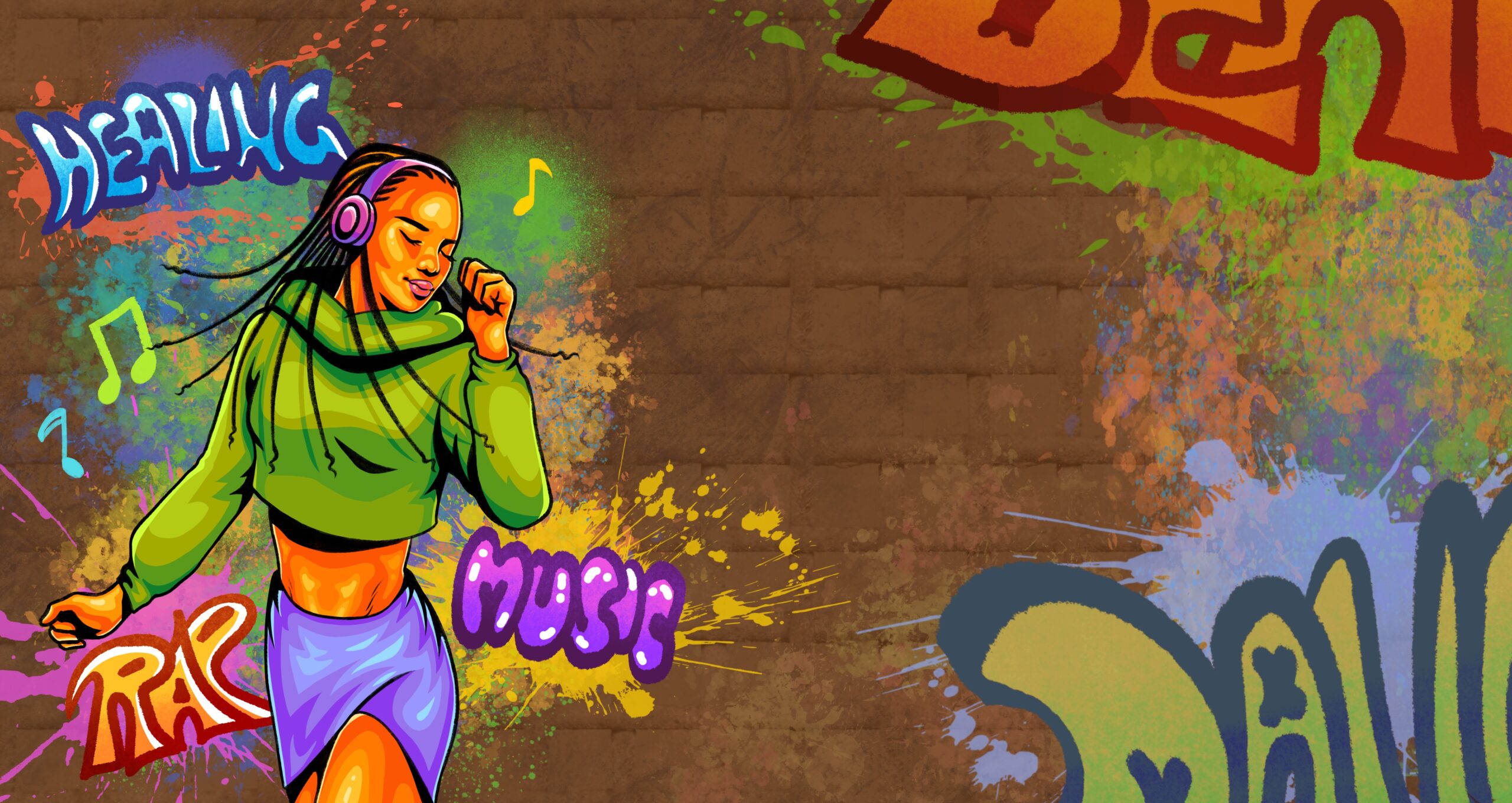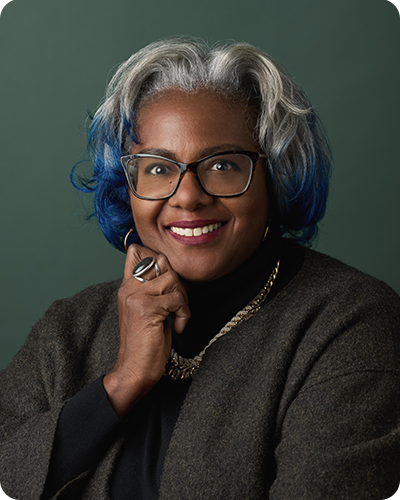Remix Your Therapy

Subscribe to Catalyst
Subscribe to get our magazine delivered right to your inbox
Related Articles
Subscribe to Catalyst
Subscribe to get our magazine delivered right to your inbox
Related Articles
The sounds of sorrow and hope amid a tangle of words on injustice, racism, and brutality often define conscious rap music. Their presence is an acknowledgement of the challenges faced and a call to Black communities to stay strong despite the pressures of prejudice. Music’s role in expressing the internal, external, and seemingly eternal conflicts arising from oppression makes it an important player in the survival of Black culture, identity, and mental health.
Everyday racism activities that permeate daily life become ‘normalized’ in the mainstream despite stated commitments to equity. These transgressions often appear mindless or habitual and while they hurt, it’s sometimes easier to ignore than battle every incident. When I was a political assistant on Parliament Hill many years ago, small green buses would wind their way around the precinct, bringing staff and members to different buildings. Regularly, the buses would drive past me. The drivers would see me flagging them but never considered that a Black woman could be a Hill staffer, so they drove by. They passed by me so often that when they did stop, I was startled.
The loop

Freda Bizimana
Given their frequency, these racist moments are regularly treated as too minor to address. However, their cumulative impact reproduces social relations of power and oppression and, over time, damages the health and well-being of Black people and other people of colour. In effect, everyday racism creates systemic racism, and systemic racism creates the environments that allow everyday racism to thrive. They both produce challenges to mental health.
When violence against Black citizens is normalized or overlooked with little to no reaction from agencies such as the media or government, then it would be easy to allow despair or cynicism to take over. According to a 2018 study published in The Lancet, Black Americans report upwards of 14 poor mental health days for every reported police killing of an unarmed Black American in their state of residence.
There’s all sorts of trauma from drama that children see
Type of s–t that normally would call for therapy
But you know just how it go in our community
Keep that s–t inside it don’t matter how hard it be
– Lyrics, J. Cole, “Friends” 2018.
The impacts are multi-generational. Discrimination experienced by a parent may also negatively impact their child’s mental health, even if that child did not experience the discriminatory treatment firsthand. In the same Lancet study referenced above, the impacts of “indirect” or “vicarious” racism were found to worsen the progression of inflammatory disease, sleep disturbances, chronic health conditions, and cognitive function – all of which decay mental health.
Music has been and remains an important part of Black cultural expression. Its ability to communicate complex messages and emotions is integral to its construction. It was fear of the effectiveness that led U.S. legislators to ban slaves from using drums in 1739. Almost 150 years later, in 1988, NWA’s single, “F–k tha Police,” drew similar concerns from authorities when it was released.
It’s not surprising then that rap music and hip-hop culture play an important role in not just expressing the concerns, fears, opportunities, and hopes of contemporary Black people but also providing an outlet to improve mental health in those same communities. In 1998, researcher and clinician Dr. Edgar Tyson introduced hip-hop therapy at the 20th Annual Symposium of the Association for the Advancement of Social Work.
Mama had four kids, but she’s a lesbian
Had to pretend so long that she’s a thespian
Had to hide in the closet, so she medicate
Society shame and the pain was too much to take
– Lyrics, Jay-Z, “Smile,” 2017.
Hip-hop therapy is a fusion of hip-hop, bibliotherapy, and music therapy. Music therapy has established credentials that stretch back to research done by Zane Ragland and Maurice Apprey as early as 1974. Similarly, bibliotherapy, which focuses on the use of literature, such as stories and poetry, to facilitate treatment, is also well established and has been proven to be effective by several systematic reviews in the treatment of emotional, physical, and mental health problems among adults.
Tyson’s groundbreaking research is the cornerstone of contemporary hip-hop therapy and lends itself well to culturally appropriate care, particularly among young people.
Toronto therapist Freda Bizimana, MSW, RSW, works with Black and racialized youth in conflict with the law at The Growth & Wellness Therapy Centre. She shared how challenging it is to reach Black youth, particularly those who have come to therapy because of their interaction with the justice system. “They don’t want to be there talking to a stranger,” she says. “Hip-hop gives us a bridge, a way to connect through something they love. It’s a modality that is not rooted in European experience. It brings back the drums common to the African Black diaspora.”
New release
In her practice, Bizimana notes that clients are not often engaged and start with one-word answers. She’ll look at their headphones and ask them what they are listening to. They’ll share their favourite songs, then delve into lyrics. At some point, Bizimana will ask them, ‘Do you ever feel that way?’ Suddenly, they are having a conversation. “This modality eases them into the process,” she says.
How does Bizimana respond to critics who question the efficacy or appropriateness of this therapeutic approach? “Hip hop is a mirror of society. If you have a problem with it, you need to look at what’s happening in society,” she says. “How are we addressing anti-Black racism? What is happening within our school systems with Black youth? What are we doing to deal with police brutality? Why are young people numbing themselves?”
No need to lie into your emerald soul
You surely know gold is always in your throat
Why not let it shine?
You’re in control of the dream
– Lyrics, Kid Cudi, “The Commander,” 2016.
Rap can surf off strife and act as a vehicle of escape. Political commentary set to a 4/4 beat transforms frustration with structural racism into an accessible anthem of collective experience. Kendrick Lemar’s album, To Pimp a Butterfly, provides political commentary on faith, culture, and race. The song “Alright” pulled those insights together and made its way onto Pitchfork and Billboard best-of lists for 2015. Lamar notes in the poem that runs before and after the song that the conflict is based on discrimination and apartheid. Like the songs of slaves, he sings that with God, things will be alright. The widescale popularity and uplifting beat eventually led to its adoption by the Black Lives Matter movement, reinforcing the relationship between conscious rap and activism.
Collective efforts
Rap’s themes of overcoming obstacles and surviving life’s challenges are specific as well as inspirational. They reflect the realities of daily life for many in Black communities. Hip-hop therapy takes rap music and other elements of hip-hop culture and blends them to create a culturally relevant therapeutic offering. Unlike regular music therapy, it also embraces group therapy. This allows for shared experiences and reduces the feelings of isolation that are often the consequence of racism. The evidence shows that it can reduce depression and anxiety while also improving communication and emotional expression.
Hip-hop therapy also does something else; it empowers. Rap music varies widely and can reinforce doctrines of sexism, commercialism, and drug culture. For Black women, it can be another source of disrespect and denial. Through hip-hop therapy, women can counteract those influences through the creation of lyrics and discussions that tell their stories in their voices.
“Hip hop gives a voice to Black youth,” Bizimana says. “It allows them to have a space to express, heal, and grow with a medium that is familiar. I’d like to see it used more frequently in Canada,” she says, noting that more therapists are adopting this approach through individual and group sessions. She is seeing schools incorporating it into curricula. “Sometimes help can come in the form of a coping playlist,” she says, “like a playlist for when you are sad and another for when you need motivation.”
Years ago, if asked, I would have expressed my disdain for hip-hop culture. It often struck me as self-flagellation, and I could not see why so many young Black people, particularly women, were enamoured with it. However, when my son began to play conscious rap for me, and I listened to lyrics that reflected my own truths, I could not help but rethink my opinions. Now, in moments of doubt and struggle, when cultural norms have stifled my options or limited my view, I find the music uplifting. No small wonder I would be caught by the appeal of hip-hop therapy. It captures and formalizes what many of us in the Black community already know: music heals, and no music heals as well as our own.
Further Reading: Weaving Through the Challenges
Resource: Experiences with Suicide: African, Caribbean, and Black Communities in Canada

Debra Yearwood
A communications pro with more than 20 years of executive experience in the health sector, expertly navigating everything from social marketing to crisis comms. When she’s not advising on the boards of Health Partners or Top Sixty Over Sixty, she’s busy finishing her book on thriving in later life (because why stop now?). Certified Health Executive by day, diversity advocate and magazine contributor by night—Debra’s the one you call when things need fixing or explaining.
Illustrator: Holly Craib
Holly Craib explores the relationships between colour and light in her artwork. She won a 2023 Applied Arts award for a conceptual illustration series.




